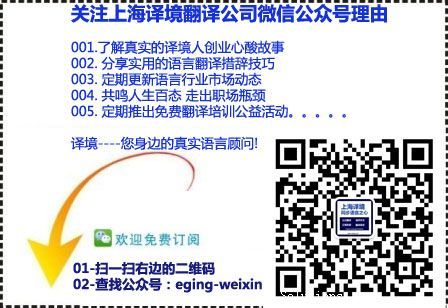E-ging Solutions is one of the largest Shanghai translation companies.if you’d like to know more about how we can help you, please don’t hesitate to contact us via through our website.
At its most basic level, language is but words, thrown together according to established rules, which then convey a message. Whilst words themselves, of course, have meaning of their own, the true meaning, intent and purpose is only conveyed fully in the context of how they are strung together and complement one another, not just syntactically, but also idiomatically.
So, words by themselves are often not that important, but what they actually bring to the wider picture of our communications is important.
Translation – not just about words
Given that language does not function on the basis of words alone, it is, therefore, nonsense to assume thattranslation is all about words. Why? We manipulate our words, bend their meanings and use them in order to facilitate the message we are trying to convey within a specific setting or to a specific audience. This manipulation, and the influence it has, is not intrinsic to a particular language, but is dependent on cultural norms, expectations and usage.
We openly accept and acknowledge that culture, customs and traditions are different the world over, so it should not be too difficult to stretch the imagination to accepting that language is also different; and I don’t just mean grammar, syntax, phenology and terminology.
Language has developed alongside the experiences our cultures have undergone; our country’s or region’s Weltanschauung (‘world view’).
The role of a translator
With this in mind, translators use words to guide them, to provide them with information, but are not bound by them.
They are not so much translating words, but ideas, aiming to achieve the same understanding, feel, reaction or response from their translation as a reader of the source text would have.
In short, they build their sentences in the context of the culture, style and approach to language of the country and readers their translation is aimed at, using their expertise and knowledge of the target audience and language to shape their rendition so that it portrays the subtleties, intricacies and details in a way that is natural and ‘domestic’ to their audience. When we understand this aim, you can see that, to this end, the source text’s style, tone, grammar, structure and, of course, words are of less importance than you may first imagine, because ultimately, what works for one people, culture or country, most likely will not work in another, because they’re different, too. Sticking closely to the source words could even have the opposite effect and actually offend or mislead.
Communicating the right message
Have you ever read a massive email or listened to someone ramble on for 10 minutes only to come away and think: that could have been summed up in two sentences?
Or, perhaps you have paraphrased, summarised and compressed a text you’ve written without losing the meaning behind it? My point exactly! Of course, I am not insinuating that all the ‘gibberish’ should be cut out during the translation process, the translator does not have the right to decide what stays and what goes in terms of the entire text. However, the questions above are merely aimed to point out the fact that what is important in communication is the ultimate message that is being conveyed, the purpose of that communication; not the words being used to render that (whether in two or twenty sentences).
This is why it is sometimes necessary to provide a brief, style guides, glossaries or even consider a consultation with your Language Service Provider, so that both parties can come to an agreement on what the aim is, and what your business wants to achieve.
The expertise and knowledge of our linguists can then be deployed to achieve those goals.
Without such additional information, at best linguists can transfer their understanding of what you want, which may not be what your intention is, particularly when company branding and culture come in to play.
With the above in mind:
What a translation is:
Accurate transfer of meaning from the original message
No omissions, additions or changes to meaning such as emphasising or understating (unless culturally justifiable to aid understanding and naturalness)
No unrequested changes to style or tone – it should mirror the source text
Appropriate for the target audience – adaptations to vocabulary, syntax, cultural references and style, where necessary or requested, in order to accommodate its readers
Linguistically accurate – grammar, spelling, collocation
Clarity – comprehensive, well written and natural
Sounds natural in the target language
What a translation isn’t:
Editing the source document in a different language
Re-writing content
A word-for-word / literal transfer between languages
An exact science, where equivalence exists across languages in terms of vocabulary, usage, meaning and connotation
To achieve the aim of a translation, we often see:
Text expansion or contraction
Sentence or even paragraph restructuring
Changes to cultural/religious references, currencies, measurements, substituting something in the source and replacing it with something the same or similar in the target audience’s country or culture to aid and reproduce the understanding readers of the original would have


